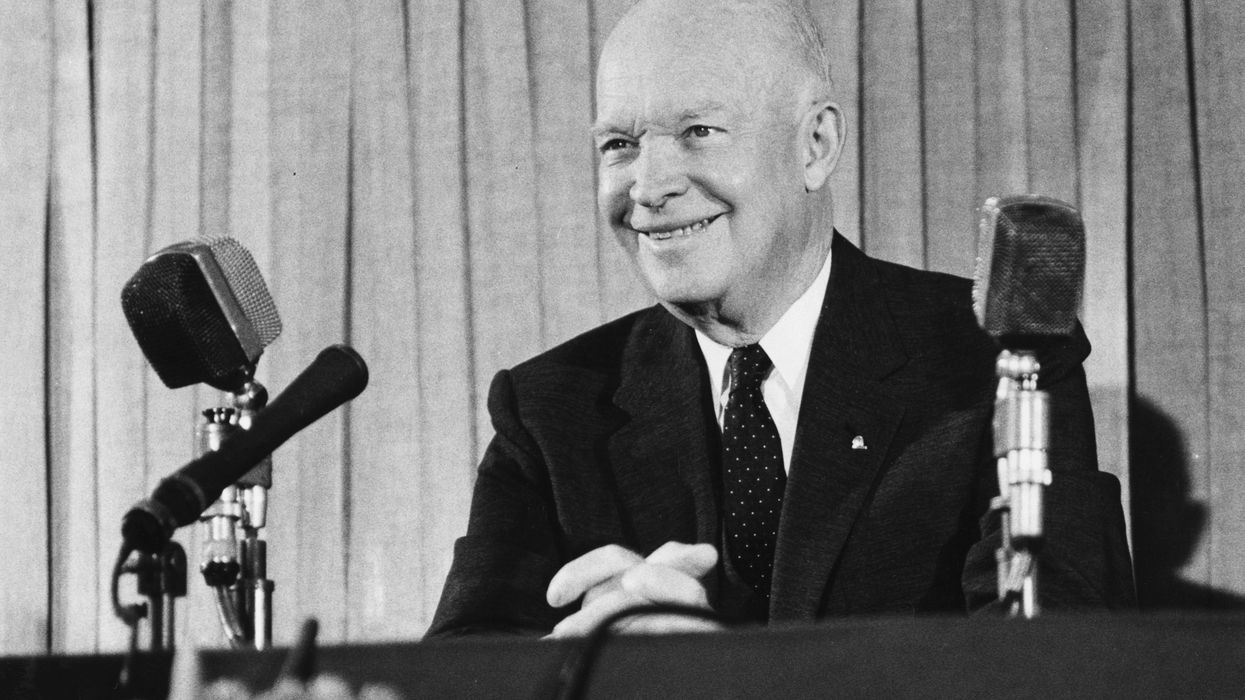Waters last month created the Prosperity Through Leadership PAC to support candidates willing to "take critical action to create prosperity for all citizens." He has been a consultant on political and advocacy campaigns in six continents.
"We will not thrive in a world where our leadership and ideals are absent." These are the words of John McCain, who understood that the wounds of war could only be healed by strong leadership based on ideals in the best interest of the people.
The late Republican senator from Arizona was not the only McCain to witness the horrors of war. Two weeks ago, on May 8, marked 75 years since the end of World War II in Europe — a war that was brutal, horrific and left a lasting scar on our planet. A war, when McCain's namesake grandfather was a Navy admiral, that taught pure evil does exist in this world along with goodness, fortitude, sacrifice and the thirst for freedom from tyranny.
It also gifted the world tested leadership, which was critical in bringing the planet back from the precipice of being lost economically, socially and morally. The ultimate example of this was Dwight D. Eisenhower, who served as supreme allied commander and led the world to victory before becoming president.
"To take your own part but never be arrogant; to be polite and courteous but never servile; to value true friends above material things, and to be honest and loyal to those people and teachings that command your respect." Eisenhower wrote these words to his grandson David in 1962. These core principles are the foundation of leadership and the basis of how he lived his life, how he waged war and how he taught others to lead.
Today, just as after World War II, we desperately need that same type of leadership. Not to help us emerge from the horrors of war, but from the devastating consequences of the novel coronavirus pandemic. The world as we know it has changed. The economic and social implications of the virus are yet to be even remotely understood, but we know the future will be difficult.
The worst is still ahead of us. And without leaders like Eisenhower and McCain, we will once again find ourselves on the same precipice as we did 75 years ago. It's a precipice that — if we cross without strong leadership — will leave the world devoid of hope, freedom, economic stability, morals, values and human decency.
In many places, the pandemic's impact will only complicate and exacerbate current problems. The United Nations predicts starvation of "biblical" proportions. Places like Nigeria — already suffering from devastating unemployment, lack of food, religious conflict and rampant terrorism — will no doubt be closer to civil war and rebellion because of the economic consequences of the virus. This is one of the reasons the country needs leaders, like its former vice president Atiku Abubakar and current Sen. Ben Murray-Bruce, who have championed critical reforms that helped Nigeria prosper.
Consider Guyana, where the international community has accused President David Granger of rampant election fraud to retain power. Granger is using the fear of Covid-19 as justification for delaying the challenges to the election result. But there's reason for optimism these illegal actions will be rectified because of the leadership of two former presidents, Donald Ramotar and Bharrat Jagdeo, who fought relentlessly for democracy and the rule of law while in office.
Thankfully, we have seen this type of leadership around the world. Former Prime Minister Volodymyr Groysman increased prosperity in Ukraine despite an ongoing war with Russia. Former Deputy Foreign Minister Michael Kau has fought for decades for Taiwan's independence from the tyranny of neighboring China.
Like McCain and Eisenhower, Groysman and Kau are no longer in positions of authority to help lead the response to the pandemic. And Ukraine's government has clearly failed and is moving the country into an economic abyss. But fortunately, Taiwanese President Tsai Ing-wen has had success with the challenges of Covid-19.
On Capitol Hill, senators including Republican Mitt Romney of Utah and Democrat Doug Jones from my home state of Alabama are making a difference because they have the people's best interest at heart — not their own. In Puerto Rico, Gov. Wanda Garced is trying to bring prosperity to the people even as the coronavirus compounds problems caused by Hurricane Maria and numerous deadly earthquakes.
Why single out these past and present leaders? As former Justice Potter Stewart said of pornography in a famous 1964 opinion, "I shall not today attempt further to define ... but I know it when I see it." I have had the honor to work with many mentioned here and have seen firsthand the leadership qualities they possess.
But leadership means different things to different people. There is no better example than my mom. I was always surprised at who my mother thought provided strong leadership. But she knew it when she saw it and her example reminds me: Just because we all view leadership differently does not mean a person is wrong in their support for an individual. Regardless of who we individually view as a good leader, we need someone who can rally the people to unify — not divide them during the darker days ahead.
In the decades since VE Day, the world not only survived but prospered in most countries. What made this possible was strong leadership, by Eisenhower and all the others listed here. If we support the strong leaders of today, maintain the leadership values of those we have lost, and nurture a corps of future leaders, there's no doubt our world will pull back from the precipice and instead find "peace, progress, and prosperity".



















